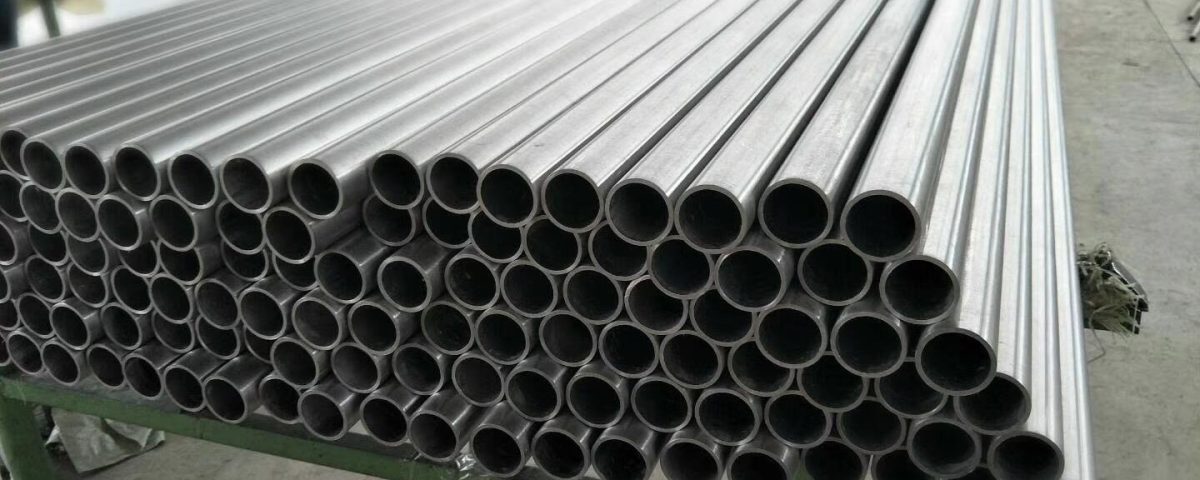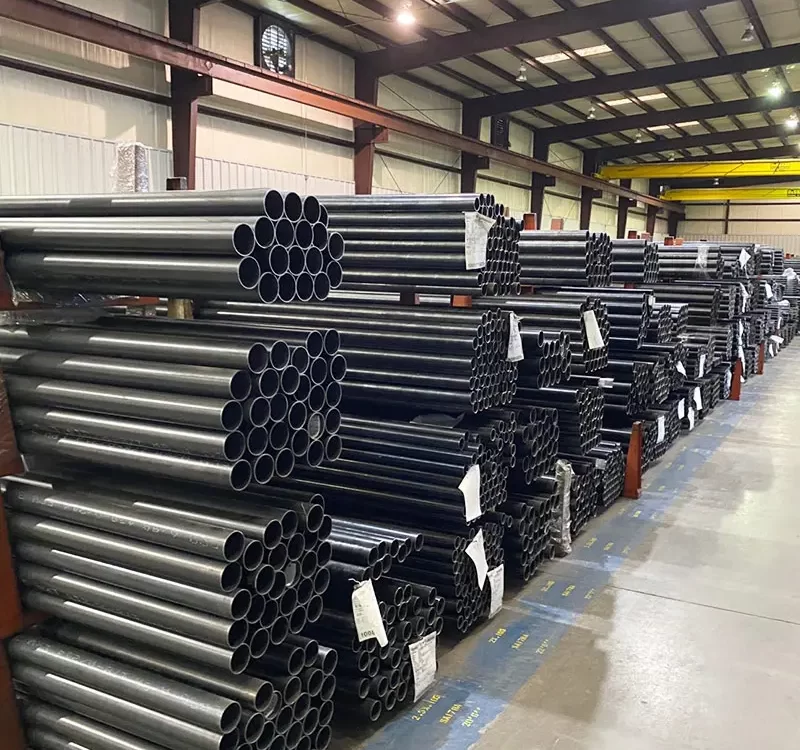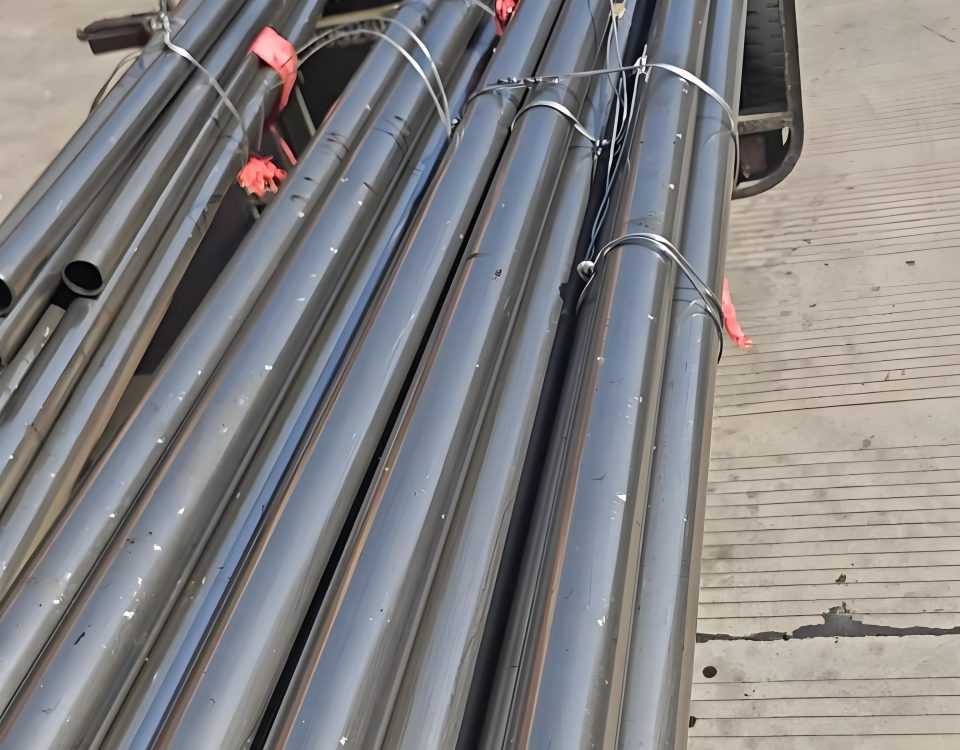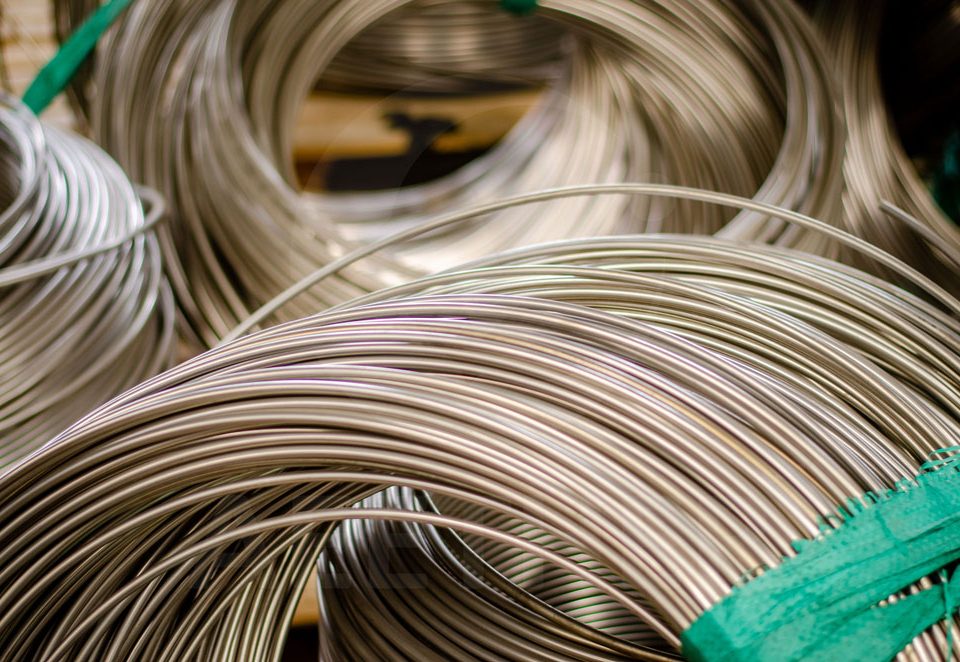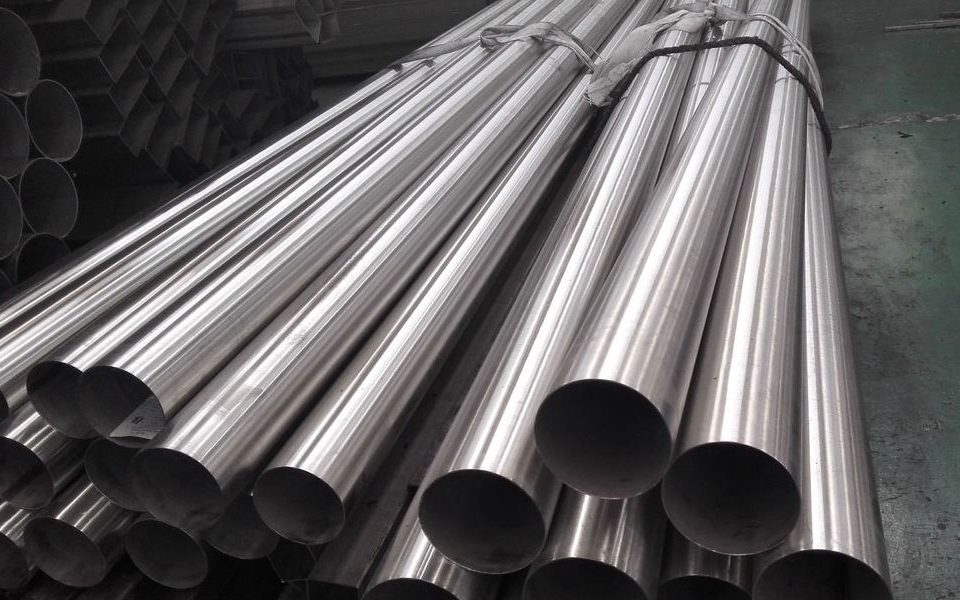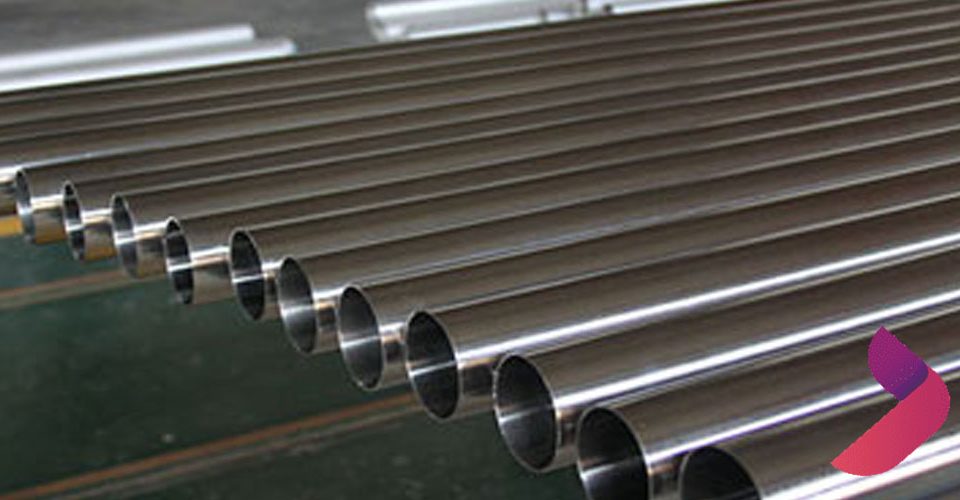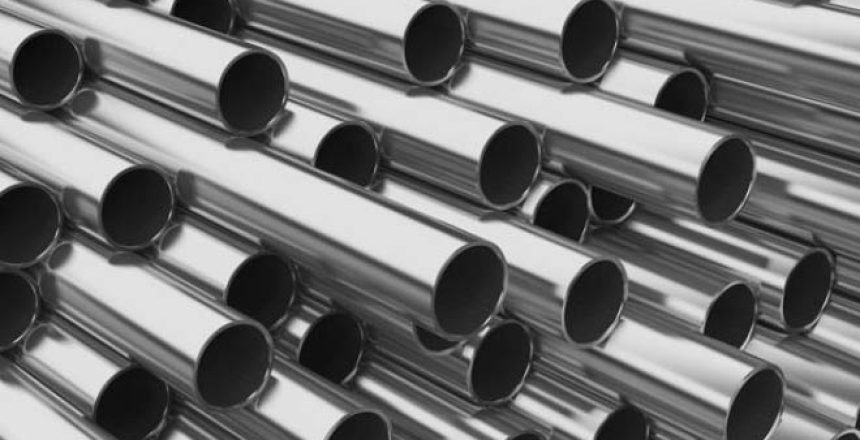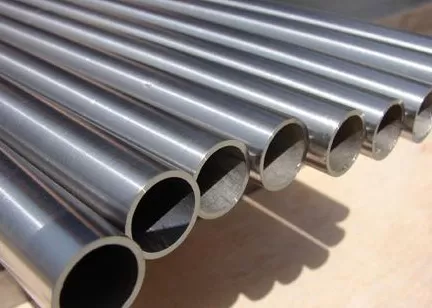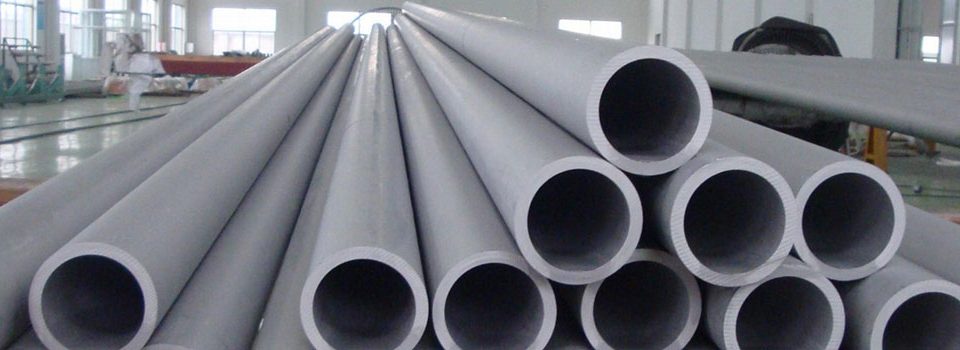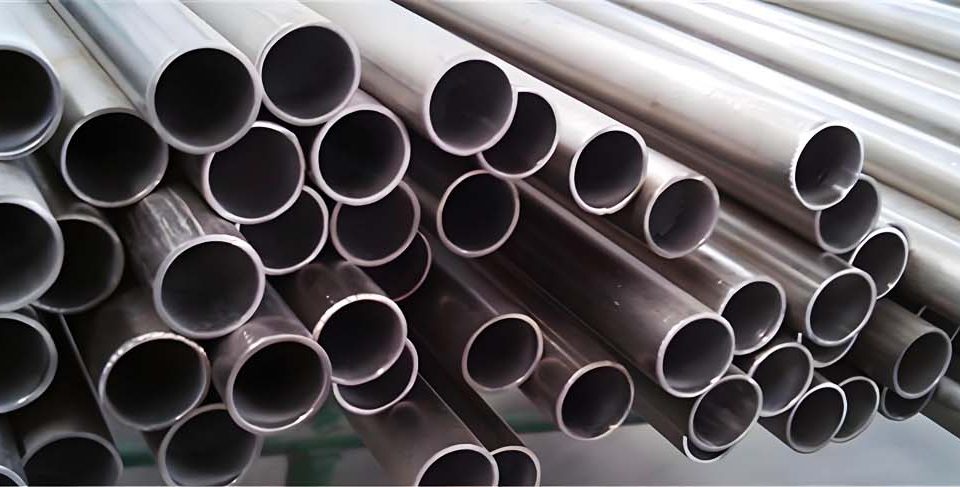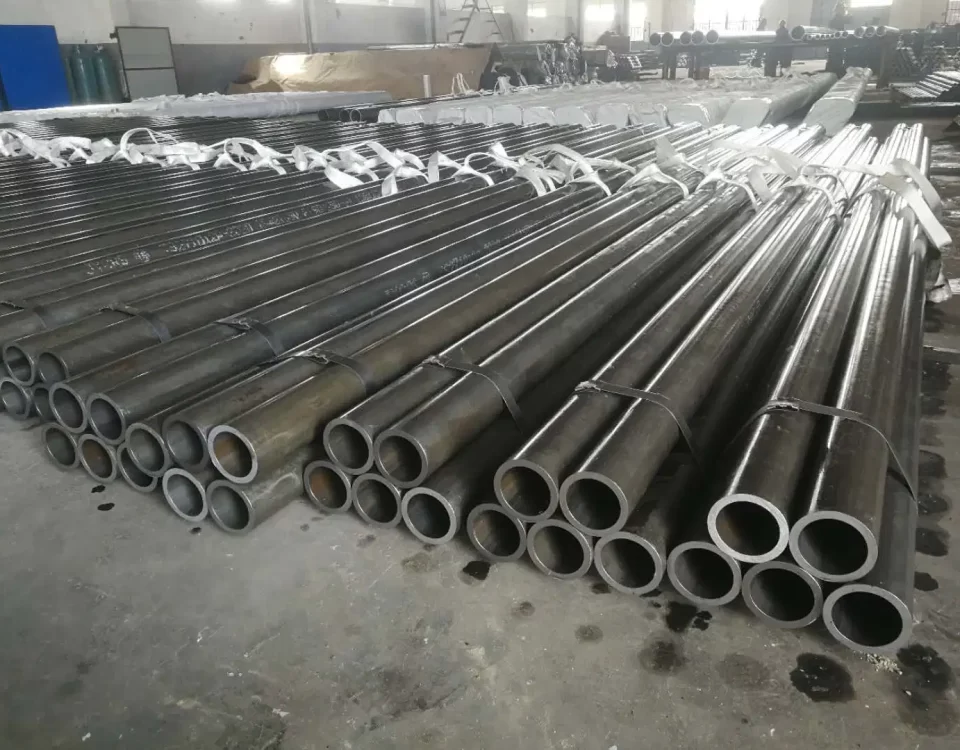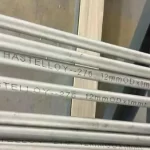
ASME SB622 Hastelloy C276 Nickel Alloy Seamless Steel Tube
January 1, 2025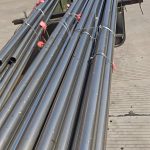
Inconel Alloy X-750 Superalloy Pipes & Tubes
January 11, 2025ASTM B338 Ti-Pd Alloy Gr7 Titanium Steel Pipe
Titanium and its alloys have gained immense popularity in industrial applications, particularly in high-performance sectors where strength, corrosion resistance, and longevity are essential. Among the various titanium grades, ASTM B338 Ti-Pd Alloy Gr7 stands out due to its exceptional properties, making it a preferred choice for demanding environments such as chemical processing, marine industries, and power generation plants. This article dives deep into the composition, properties, applications, and benefits of ASTM B338 Ti-Pd Alloy Gr7 Titanium Steel Pipes, shedding light on why they are a go-to solution for industries worldwide.
Introduction to ASTM B338 Ti-Pd Alloy Gr7
The ASTM B338 standard sets the benchmark for titanium and titanium alloy pipes, providing detailed specifications for seamless and welded pipes used in industrial applications. Grade 7 (Gr7) is a titanium alloy that incorporates a small percentage of palladium, enhancing its corrosion resistance in highly acidic and chloride-rich environments. This unique composition makes Gr7 a standout material for industries that prioritize durability and resistance to chemical degradation.
Understanding ASTM B338 Standard
The ASTM B338 standard governs the production of titanium pipes, ensuring high-quality materials meet specific mechanical and chemical requirements. Key aspects include:
- Material Composition: Guidelines for titanium and alloy content.
- Mechanical Properties: Minimum tensile strength, yield strength, and elongation percentages.
- Dimensional Accuracy: Precise tolerances for pipe dimensions.
- Testing Requirements: Rigorous testing for compliance, including tensile and chemical tests.
Meeting ASTM B338 is crucial for manufacturers to ensure reliability and safety in industrial applications.
What is Ti-Pd Alloy Gr7?
Ti-Pd Alloy Gr7 is a titanium alloy with a small addition of palladium (typically 0.12%-0.25%). This alloy is specifically engineered to offer:
- Exceptional Corrosion Resistance: Ideal for environments containing strong acids, chlorides, and seawater.
- High Strength and Durability: Retains mechanical integrity under extreme conditions.
- Biocompatibility: Non-toxic and safe for use in sensitive environments.
Compared to other grades like Gr2 or Gr5, Gr7’s corrosion resistance gives it a significant edge for specific industrial applications.
Specifications of ASTM B338 Ti-Pd Alloy Gr7 Titanium Steel Pipes
ASTM B338 Grade 7 titanium steel pipes are designed to meet stringent requirements for high-performance applications. The following are key specifications that define these pipes:
- Standard Specification
- ASTM B338: Covers seamless and welded titanium and titanium alloy pipes for condensers, heat exchangers, and other industrial applications.
- Grade: Gr7 (Ti-Pd Alloy).
- Forms Available
- Seamless Pipes: Used for applications requiring superior strength and pressure handling.
- Welded Pipes: Ideal for lower-pressure applications and cost-effective solutions.
- Dimensions
- Outer Diameter (OD): Ranges from 6 mm to 114 mm (customized sizes available).
- Wall Thickness: Ranges from 0.5 mm to 10 mm (depending on application).
- Length: Typically up to 6 meters or as per customer requirements.
- Compliance with ASTM B338 Standards
- Pipes must adhere to the dimensional tolerances, surface finish, and testing protocols outlined in ASTM B338.
- Grades: Gr7 is specifically defined for enhanced corrosion resistance in harsh environments.
- Surface Finish Options
- Pickled
- Sandblasted
- Polished
Chemical Composition of ASTM B338 Ti-Pd Alloy Gr7
The chemical composition of Grade 7 titanium is what makes it highly resistant to corrosion and suitable for extreme environments. Below is the standard composition for Gr7 as per ASTM specifications:
| Element | Composition (%) |
|---|---|
| Titanium (Ti) | Balance |
| Palladium (Pd) | 0.12 – 0.25 |
| Iron (Fe) | Max 0.30 |
| Oxygen (O) | Max 0.25 |
| Carbon (C) | Max 0.08 |
| Nitrogen (N) | Max 0.03 |
| Hydrogen (H) | Max 0.015 |
- Palladium (Pd): The addition of palladium enhances the corrosion resistance of titanium, especially in chloride-rich or acidic environments.
- Impurity levels are tightly controlled to ensure mechanical performance and corrosion resistance.
Mechanical Properties of ASTM B338 Ti-Pd Alloy Gr7
Grade 7 titanium pipes exhibit excellent mechanical properties, combining lightweight with high strength and ductility. Here are the typical properties of Gr7:
| Property | Value |
|---|---|
| Density | 4.51 g/cm³ |
| Tensile Strength | Min 345 MPa (50 ksi) |
| Yield Strength | Min 275 MPa (40 ksi) |
| Elongation at Break | Min 20% |
| Modulus of Elasticity | Approx. 105 GPa |
| Hardness | Approx. 160 HV |
- Corrosion Resistance: Exceptional performance in acidic, chloride, and seawater environments.
- Temperature Range: Excellent mechanical stability at high temperatures up to 300°C (572°F).
Production Process of Gr7 Titanium Pipes
The production of ASTM B338 Ti-Pd Alloy Gr7 pipes is a highly specialized process to ensure compliance with the standard and maintain the unique properties of the material.
- Titanium Extraction and Refining
- Titanium is extracted from its ores (such as ilmenite or rutile) using the Kroll Process, producing sponge titanium.
- Palladium is added during the refining process to create the Ti-Pd alloy.
- Alloying
- The palladium is uniformly distributed in the titanium matrix using vacuum arc remelting (VAR) or electron beam melting techniques.
- Pipe Manufacturing Techniques
- Seamless Pipes:
- Made using a billet extrusion or piercing process to ensure a uniform, defect-free pipe.
- These pipes undergo further cold rolling to achieve precise dimensions.
- Welded Pipes:
- Sheets or plates of Ti-Pd alloy are rolled into a cylindrical shape and welded longitudinally.
- Welded pipes are more cost-effective but less suited for high-pressure environments.
- Seamless Pipes:
- Heat Treatment
- Annealing or stress-relief treatment ensures uniform mechanical properties and enhances ductility.
- Surface Finishing
- The pipes are pickled, polished, or sandblasted to remove any impurities or surface defects.
Testing and Quality Control of ASTM B338 Gr7 Titanium Pipes
Ensuring the quality of titanium pipes is critical for maintaining safety and performance standards. ASTM B338 outlines rigorous testing requirements for Ti-Pd Alloy Gr7 pipes.
1. Chemical Composition Testing
- Spectroscopy: Determines the precise chemical composition, ensuring palladium and titanium levels meet specifications.
2. Mechanical Testing
- Tensile Test: Verifies the minimum yield strength, tensile strength, and elongation properties of the pipes.
- Hardness Test: Checks for material uniformity and durability.
3. Non-Destructive Testing (NDT)
- Ultrasonic Testing (UT): Detects internal flaws or inclusions in the pipe material.
- Radiographic Testing (RT): Used to inspect welded pipes for defects in weld seams.
4. Dimensional and Visual Inspection
- Ensures the pipes meet specified dimensions and are free from surface defects such as cracks, pits, or excessive oxidation.
5. Hydrostatic Testing
- Pipes are subjected to internal pressure tests to verify their strength and leak-free operation under working conditions.
6. Corrosion Resistance Testing
- Simulated environments (acidic or chloride-rich solutions) are used to assess the pipe’s ability to resist corrosion under extreme conditions.
Advantages of ASTM B338 Gr7 Titanium Pipes
- Superior Corrosion Resistance: Outstanding performance in acidic, chlorinated, and seawater environments due to palladium addition.
- Lightweight and Strong: High strength-to-weight ratio, reducing structural load while maintaining durability.
- Longevity: Extremely low maintenance and extended service life even in harsh environments.
- Versatility: Suitable for a wide range of applications across chemical, marine, power generation, and aerospace industries.
- Eco-Friendly: 100% recyclable, reducing the environmental impact.
Applications of Gr7 Titanium Steel Pipes
Gr7 titanium pipes are highly versatile and are used in numerous industries, including:
- Chemical Processing: Resistant to strong acids and bases, making it ideal for heat exchangers and reactors.
- Marine Environments: Perfect for desalination plants, shipbuilding, and offshore oil rigs due to its anti-corrosive properties.
- Aerospace and Defense: Lightweight yet durable, suitable for aircraft and military equipment.
- Power Generation: Used in nuclear power plants and geothermal systems for their resistance to high temperatures and chemicals.
Corrosion Resistance of Ti-Pd Alloy Gr7
The addition of palladium to titanium significantly enhances corrosion resistance, particularly against:
- Acidic Media: Resists sulfuric, hydrochloric, and nitric acids.
- Chlorides: Performs exceptionally well in saltwater and chloride-rich environments.
- Stress Corrosion Cracking: Minimizes cracking due to stress and environmental exposure.
Gr7’s performance surpasses unalloyed titanium grades like Gr2, making it a preferred choice for harsh chemical environments.
Manufacturing Process of Gr7 Pipes
The production of ASTM B338 Gr7 titanium pipes involves several steps:
- Titanium Refining: Extraction and refining of titanium ore.
- Alloying with Palladium: Controlled addition of palladium to enhance properties.
- Pipe Formation: Seamless and welded methods for pipe manufacturing.
- Quality Testing: Compliance with ASTM B338 through rigorous mechanical and chemical testing.
Heat Treatment and Fabrication of Gr7
Heat treatment is a crucial step in ensuring the mechanical integrity of Gr7 pipes. Common processes include annealing to improve ductility and stress relieving to enhance performance. Gr7 also requires specialized welding techniques to maintain its properties during fabrication.
Advantages of ASTM B338 Gr7 Titanium Pipes
- Lightweight and Strong: Easier to handle and install while offering exceptional strength.
- Corrosion Resistant: Withstands harsh chemicals and environments.
- Longevity: Requires minimal maintenance, offering long-term cost savings.
- Eco-Friendly: Titanium is recyclable and non-toxic, contributing to sustainable practices.
FAQs
- What industries use ASTM B338 Gr7 pipes?
Industries like chemical processing, marine, aerospace, and power generation commonly use Gr7 pipes due to their corrosion resistance and durability. - What makes Gr7 better than Gr2?
Gr7 has palladium, which enhances corrosion resistance in acidic and chloride-rich environments. - How are Gr7 pipes tested?
They undergo tensile, chemical, and visual inspections to meet ASTM B338 standards. - Can Gr7 pipes handle high temperatures?
Yes, they are resistant to heat and perform well under extreme conditions. - Are Gr7 pipes recyclable?
Yes, titanium is highly recyclable, making Gr7 an eco-friendly material choice. - What sizes are available for Gr7 pipes?
Pipes come in various sizes and thicknesses, depending on the application and manufacturer specifications.
The ASTM B338 Ti-Pd Alloy Gr7 Titanium Steel Pipe represents the pinnacle of material engineering, offering a combination of strength, durability, and corrosion resistance that makes it indispensable in high-performance industries. With a meticulous production process, stringent testing, and compliance with ASTM standards, Gr7 pipes provide unmatched reliability and efficiency. Whether it’s a chemical plant, desalination unit, or aerospace system, these pipes continue to be the material of choice for critical applications.

